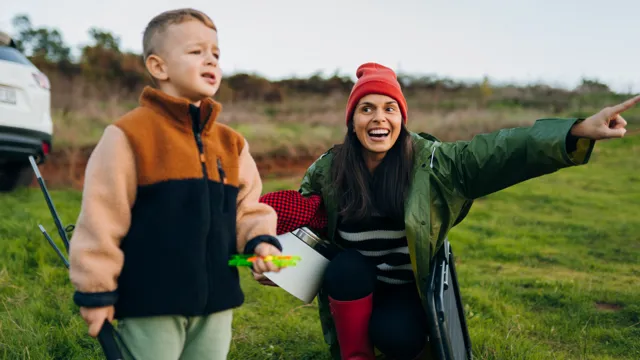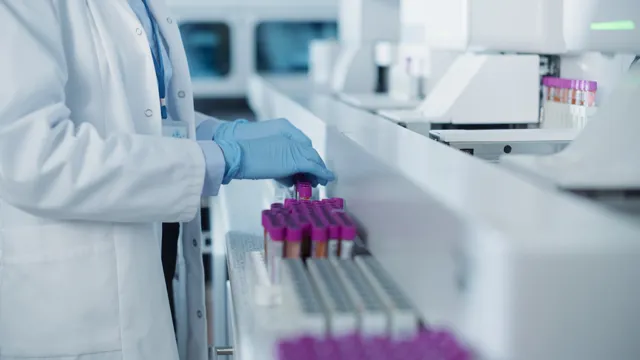
March 2024 was meant to be a busy month for Dee, work deadlines, family life, but a quiet ache in her side changed everything. A few days later, she woke up jaundiced. Her GP took one look and sent her straight to emergency. A blocked bile duct was the cause. She spent several days in hospital and had a stent placed. Doctors suggested removing her gallbladder, but she chose to wait. Her mother had experienced complications, and at the time, it seemed this might be a one-off.
Six months later, the pain returned. She acted quickly and booked the surgery. It went smoothly, but her specialist remained concerned. A follow-up day procedure was arranged: another stent, and a biopsy on her pancreas. Her husband, Greg, flew off-grid for a surf trip in Indonesia. They thought it was routine. Instead of going home that day, she spent three nights in hospital.
On the Friday morning, her specialist came in and told her the words no one expects, there’s a tumour. It was pancreatic cancer. She was 48 years old. Greg was unreachable. Her mother was away. Her teenage daughters were at home, one of them preparing for the HSC. She called her sister, who has barely left her side since.
Whipple surgery and “precautionary” treatment
Dee underwent a Whipple procedure. Her recovery was, in her words, “textbook”. Pathology confirmed stage 3 pancreatic cancer. The tumour had been close to the superior mesenteric artery, and a number of lymph nodes were involved. Her tumour markers were clear. Chemotherapy was recommended. Each cycle involved a full day in the chair, followed by 46 hours of chemo at home via a pump. On day four, Greg administered an immune booster injection.
She lost 30 kilos. Her appetite vanished. She spent most of those six months in bed, trying to keep food down and stay present for her daughters. Everyone believed the chemo was precautionary. That the cancer had been caught early. That she was doing the hard part to make sure it was gone.
She rang the bell at the end of treatment, confident she was cancer free.
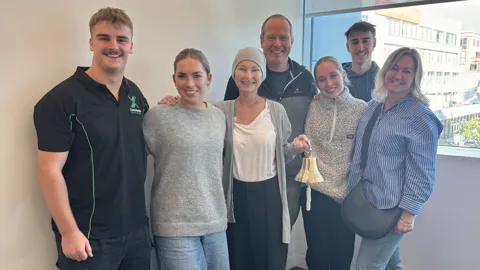
The scan that changed everything
Four weeks later, in June 2025, a routine scan revealed the cancer had already spread, now in her lungs, with several lesions. Her oncologist hoped it was inflammation, but it wasn’t. They realised the cancer had been present before chemo, simply too small to detect. That’s one of the harsh realities of pancreatic cancer. It’s aggressive. It’s unpredictable. And it doesn’t play by the rules. She was told the disease was now considered terminal. The average life expectancy: nine to twelve months.
But averages don’t define her. She, and her family, decided to keep going.
Leaning on a village
Through all of it, one truth became clear: the importance of having a village. She had always been independent, someone who found it difficult to ask for help. But people showed up anyway. Friends, family, neighbours, colleagues, schoolmates, soccer parents, even strangers. Meals were delivered. Houses cleaned. Kids picked up. Holiday homes loaned. Appointments driven to. Messages sent, and then sent again. She needed it. Greg, now her primary caregiver, needed it too. As she says, “People want to help. They just don’t always know how. But showing up, in any form, matters.”
Her advice for others is simple but profound: let people help. Let them in. They will carry you further than you can imagine.
Advice for others living with pancreatic cancer
She’s honest about what she’s learned:
especially after a Whipple. Digestion changes, and the earlier you manage it, the better.
Side effects aren’t just part of the deal, they can often be managed.
Fatigue lingers, and pushing through doesn’t always help. Being kind to yourself is part of surviving.
A friend once told her, “If ever there was a time to be selfish, this is it.” That gave her the permission to focus on what mattered most: surviving.
August 2025 - A new chapter: clinical trial
While waitlisted for several clinical trials, she completed a final round of bridging chemotherapy. It took a significant toll. Her liver function dropped. Neuropathy worsened. Protein levels plummeted. Since her diagnosis, she has lost over 35 kilos. Rebuilding muscle and strength remains an uphill climb.
But in July, she received the news she had been hoping for, a place in a Phase 1 targeted therapy trial, focused on the KRAS G12D mutation driving her cancer. Trial places are limited, particularly for people with pancreatic cancer. She’s acutely aware that while she got in, others are still waiting.
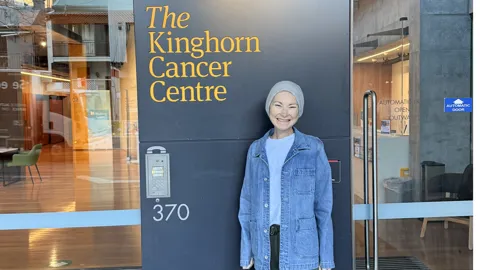
Life on the trial
Screening was intense. The first few rounds on the trial meant weekly eight-hour hospital visits. ECGs. Blood tests. Constant monitoring. It was physically draining but emotionally reassuring.
She takes six trial tablets every morning, alongside more than 25 other tablets,including Creon. Nausea, fatigue and diarrhoea are part of daily life, but they’re being managed, thanks to the care of her oncologist and the trial team. Once again, her village has shown up. Friends and family took turns driving her to appointments, lightening the load on Greg.
Being part of research gives Dee purpose. It helps her feel that she’s contributing to something bigger. Something that might help others one day. And for the first time in a long time, she feels genuine hope.
Looking ahead
Plans are underway for a long-awaited trip to Europe later this year to celebrate her 50th birthday. Because making plans matters. Living fully matters. And hope isn’t just a feeling, it’s a choice Dee and her family make every day. They continue to show up, to speak out, and to share their story, so others feel less alone.
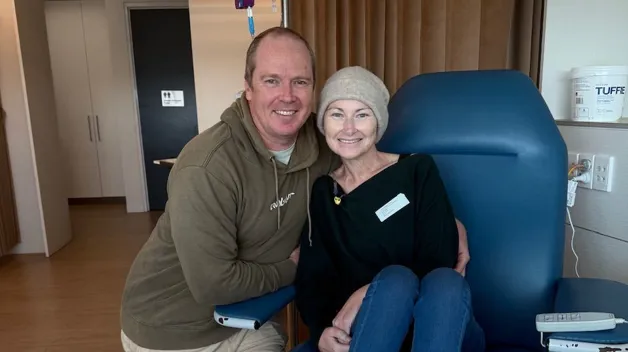
Remember September
This September, Greg is walking 75+km to raise funds and awareness for pancreatic cancer


